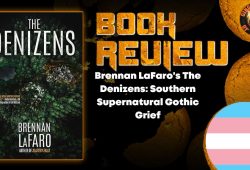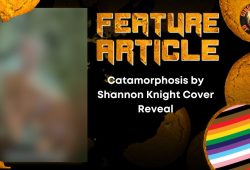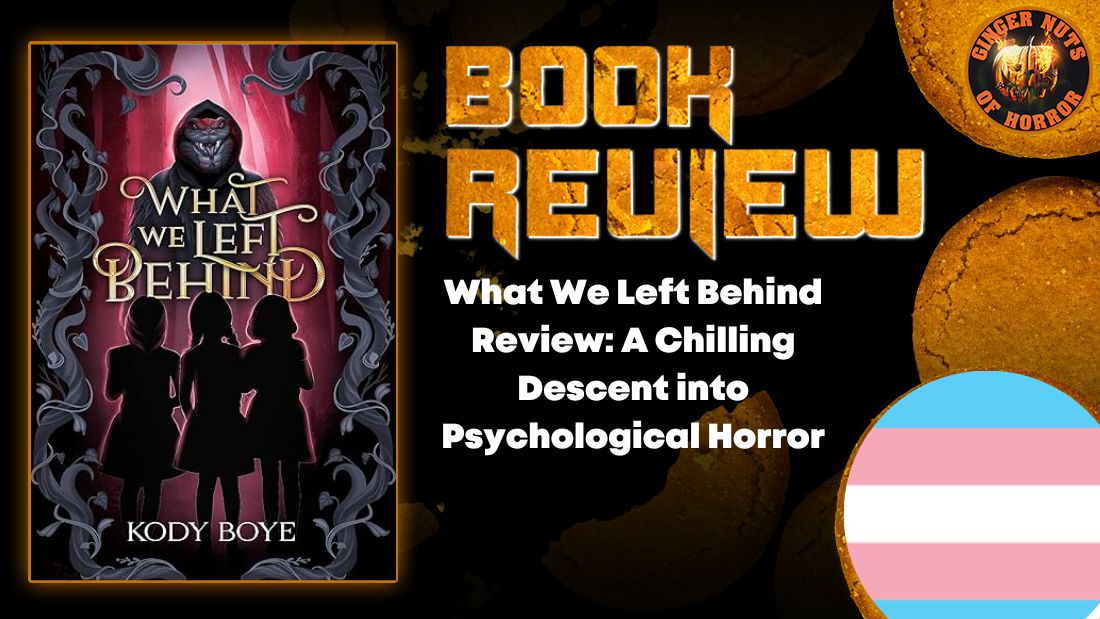The Homecoming by Zoë Apostolides, Gothic Secrets and Female Themes
The Homecoming remains a compelling read for those drawn to character-driven Gothic fiction and atmospheric literary suspense. It is a promising, if imperfect, debut that showcases Apostolides’ considerable talents.
Zoë Apostolides’ debut novel, The Homecoming, arrives draped in the evocative trappings of Gothic horror: a crumbling manor, a remote village, an enigmatic elderly woman, and whispers of the supernatural. Set against the brooding backdrop of Northumberland’s Elver House, named for the juvenile eels writhing in the nearby Conger Brook, the novel promises a chilling exploration of isolation and secrets. 1 While Apostolides delivers a masterclass in atmospheric dread and weaves poignant themes of female autonomy and regret, the novel ultimately struggles under the weight of its predictable trajectory and underdeveloped subplots, resulting in a work that is hauntingly beautiful yet structurally unsound.
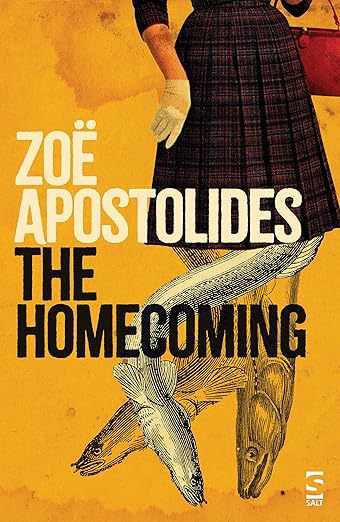
Ellen, a young London-based ghostwriter, accepts an assignment to record the memoirs of Catherine Carey, the last resident of the decaying Elver House. Expecting a quaint cottage and a straightforward interview process, Ellen instead finds herself isolated in a sprawling, dilapidated estate accessible only by foot.
Miss Carey herself is elusive, forgetful, and seemingly haunted by more than just memories. As Ellen delves deeper into Catherine’s past, a life marked by her father’s tragic death, wartime service as a hospital, and decades of solitude, she confronts an unsettling presence within the house and the unnerving behaviour of the locals.
Apostolides excels in crafting an environment thick with unease. Elver House is a character in itself: its faded grandeur, damp corridors, overgrown grounds, and the constant whisper of the eel-filled brook create a palpable sense of decay and lingering menace. The early scenes, particularly Ellen’s storm-lashed arrival to an empty, unlocked house, are genuinely unnerving, channeling classic Gothic tension reminiscent of The Woman in Black or Daphne du Maurier.
Beneath the surface-level ghost story lies the novel’s true strength: a nuanced exploration of womanhood, motherhood, and the burdens of choice. Apostolides, drawing on her own experience as a ghostwriter, uses Ellen’s profession (“ghost-writing”) as a potent metaphor for the unseen labour of women and the stories buried by time. Miss Carey’s life becomes a vessel for examining the historical constraints placed on women. As the sole heir to Elver House, she remained unmarried and childless, a decision (or circumstance) that isolated her but preserved her autonomy in a society demanding women fulfil domestic roles. Her potential regrets and the societal pressure she defied resonate powerfully.
This theme is mirrored in Ellen’s contemporary storyline through her fractured relationship with her unnamed best friend (referred to only as “you”). Flashbacks and second-person narration reveal a deep bond fractured when the friend embraced marriage and motherhood, leaving Ellen feeling abandoned and adrift. Ellen actively chooses a child-free life focused on her career, yet grapples with societal expectations and the isolating loneliness of that choice.
Apostolides poignantly contrasts the cyclical, instinctual “homecoming” migration of the critically endangered European eels, returning to their birthplace to spawn and die, with the more complex, often thwarted, human yearning for belonging, purpose, and understanding, particularly for women navigating paths outside traditional motherhood. The eels, while a fascinating and unique symbol, unfortunately, feel underutilized beyond this metaphoric level, their eerie potential for body horror or deeper supernatural connection left largely unexplored.
Ellen is a relatable and well-drawn protagonist. Her initial professionalism gives way to believable vulnerability as the strangeness of Elver House and her own unresolved grief unsettle her. Miss Carey remains more enigmatic, a figure glimpsed through the fog of time and perhaps cognitive decline. While this ambiguity serves the mystery, it also prevents a deeper emotional connection; readers learn about her life more than they feel the weight of it, leaving her historical sections feeling occasionally underdeveloped. The villagers and Ellen’s editor serve more as atmospheric props than fully realized characters.
Apostolides’ prose is undoubtedly the novel’s crowning achievement. Her writing is elegant, evocative, and perfectly calibrated for the Gothic tone.
She renders the Northumberland landscape and the oppressive grandeur of Elver House with vivid, immersive detail. The slow, deliberate pacing effectively builds a suffocating atmosphere of dread. The use of second-person passages addressed to Ellen’s lost friend is a stylistic risk that mostly pays off, adding a layer of intimate melancholy and framing the narrative as a potential confessional or plea.
Where The Homecoming stumbles is in its narrative engine and payoff. The central “twist” or revelation regarding the true nature of the haunting at Elver House is telegraphed too early and too clearly for many readers. You could argue this early awareness might be intentional, allowing focus on the thematic undertones, it undeniably saps the narrative of its intended climactic shock and undermines the horror elements.
The pacing, while atmospherically effective, sags significantly in the middle. Lengthy internal monologues from Ellen, particularly detailed descriptions of mundane tasks like meal preparation, disrupt the tension without adding substantial depth. The subplot involving Ellen’s estranged friend, while thematically relevant, feels disconnected and underdeveloped until the very end. Its integration into the primary narrative is clumsy, interrupting the Gothic flow of the Elver House storyline without providing sufficient emotional or narrative payoff on its own. The promising folk-horror potential of the suspicious villagers also remains largely unexplored.
The Homecoming is a novel of significant ambition and undeniable aesthetic achievement. Zoë Apostolides establishes herself as a writer with a keen eye for atmosphere, a gift for elegant prose, and a thoughtful engagement with complex themes of female autonomy, societal expectation, and the enduring pain of isolation and fractured relationships. The setting of Elver House is unforgettable, and the use of the eel migration as a metaphor for “homecoming” is inspired, if not fully exploited.
However, the novel is hampered by a predictable central mystery, uneven pacing with sagging middle sections, and underdeveloped subplots that distract from the core narrative.
Despite its flaws, The Homecoming remains a compelling read for those drawn to character-driven Gothic fiction and atmospheric literary suspense. It is a promising, if imperfect, debut that showcases Apostolides’ considerable talents. While the house of its narrative may show some cracks in its foundation, the beauty of its construction and the lingering resonance of its themes ensure it won’t be easily forgotten. One finishes the book eager to see what Apostolides builds next, hopefully on slightly firmer ground and with the confidence to fully embrace either the chilling horror or the profound literary exploration her skills can clearly deliver
The Homecoming by Zoë Apostolides
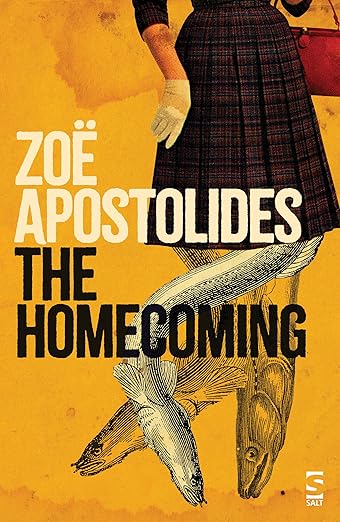
The Homecoming, is Zoë Apostolides’s debut novel. Quietly disturbing, it tells the story of Ellen, a young ghost-writer sent to record the memoirs of an elderly woman living in a remote Northumberland manor. Elver House is dilapidated, its faded beauty falling to ruin.
The assignment seems simple enough: Ellen will spend a week conducting interviews at Elver House before returning to London to write Miss Carey’s autobiography. She and her editor know very little about Miss Carey besides her request to be interviewed in person; Ellen’s editor has agreed the dates and gathered scant information, but it’ll be up to Ellen to tease out the story.
The village is remote and rural, and Elver is no quaint country cottage but a wild and sprawling estate. Ellen digs deeper into the history of Elver, preparing to return to London and write her client’s book. In doing so, she must confront much more than she bargained for, and realises that Miss Carey is being haunted by more than the past.
Part mystery, part ghost story, this is a story about isolation, memory, spirits and secrets, intergenerational friendship and motherhood.
- Editors note I am terrifed and hate eels. True story two days after reading Nightwarriors by Graham Masterton I was bitten by an eel. If you know you know.
Further Reading
For fans of horror literature, The Ginger Nuts of Horror website is an essential destination that should not be overlooked. This platform offers a dedicated horror book review section that caters specifically to the needs of horror enthusiasts. With its unique blend of insightful critiques, expert recommendations, and a vibrant community, the site serves as a treasure trove for anyone seeking their next spine-chilling read.
One of the standout features of the horror book review section is its diversity. Readers can discover everything from classic horror novels to contemporary indie gems, ensuring that there’s something for everyone. Each review is thoughtfully penned, providing not just a summary but also a deep dive into the themes, writing style, and overall atmosphere of the works. This allows readers to gauge whether a particular book aligns with their preferences.
For those passionate about horror literature, checking out this section is a must!




